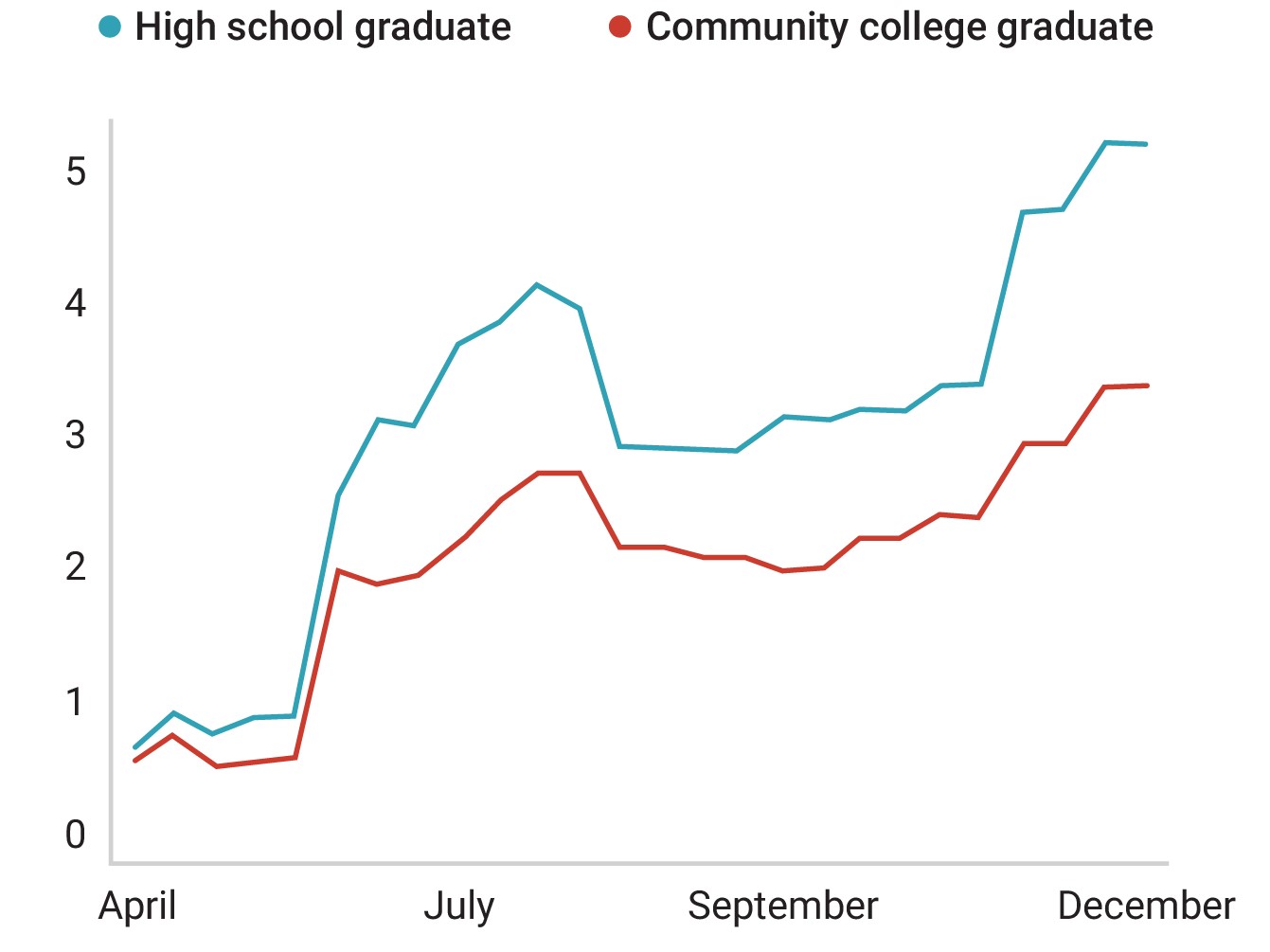
Recent layoffs of corporate employees at major companies like Starbucks signal a concerning trend in white-collar unemployment, with college graduates facing increased job insecurity and slower wage growth compared to other worker segments.
The national unemployment rate has exceeded 4 percent since May, after remaining below that mark for over two years. While the overall job market remains historically strong, white-collar workers are experiencing more pronounced impacts from recent economic shifts.
Industry experts point to several factors driving this trend. Companies that hired aggressively during pandemic-driven demand surges are now reducing headcount as Federal Reserve interest rate hikes impact the economy. Many firms face pressure from investors to streamline operations and cut costs.
The rise of artificial intelligence technologies and potential reductions in federal agency jobs, which traditionally employ many college graduates, have raised questions about long-term prospects for knowledge workers. Some economists suggest these changes could represent a permanent shift rather than a temporary adjustment.
"We're seeing a meaningful transition in the way work is done in the white-collar world," notes Carl Tannenbaum, chief economist at Northern Trust. "I tell people a wave is coming."
The trend marks a reversal from historical patterns where college degrees typically provided strong employment security. As companies continue restructuring and adopting new technologies, white-collar professionals may need to adapt their skills and career expectations in an evolving job market.
While economists remain divided on whether current conditions reflect cyclical changes or signal a more fundamental transformation of knowledge work, the data shows college-educated workers facing new challenges in job stability and compensation growth.